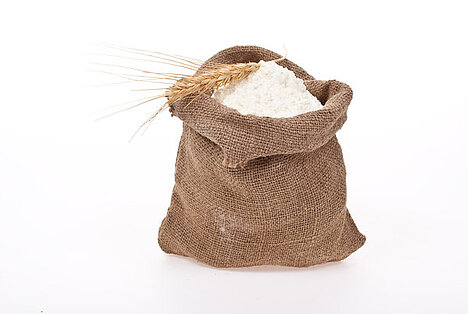Whole wheat flour

Whole wheat flour is a flour that is milled from the whole grain of wheat. It therefore contains all the components of the grain, such as germ, husk and endosperm. This makes it rich in fiber, minerals, vitamins and protein. But is whole wheat flour also good for dogs? In this article, you can find out more about the advantages and disadvantages of whole wheat flour for your four-legged friend.
Benefits of whole wheat flour for dogs
Whole wheat flour can have several benefits for your dog's health and well-being. For example:
- It can aid digestion as it is high in fiber, which can stimulate the intestines and prevent constipation.
- It can strengthen the immune system, as it contains many antioxidants and vitamins that can support the body's defenses.
- It can clean the teeth as it creates a mechanical friction when chewed, which can reduce plaque and tartar.
Whole wheat flour can also be a good ingredient for homemade dog cookies as it combines well with other ingredients such as oil, herbs or vegetables. So you can give your dog a tasty and healthy treat every now and then.
Disadvantages of whole wheat flour for dogs
However, whole wheat flour is not suitable for every dog. There are also some disadvantages that you should be aware of. For example:
- It can cause allergies or intolerances as it contains gluten, a protein that some dogs can't digest well. Symptoms can include itching, skin rashes, diarrhea or vomiting.
- It can lead to obesity as it contains a lot of carbohydrates, which are quickly converted into sugar. If your dog eats too much whole wheat flour, it can gain weight and increase the risk of diabetes or other diseases.
- It can inhibit the absorption of other nutrients as it contains phytic acid, a substance that can reduce the availability of minerals such as iron, zinc or calcium. If your dog gets too little of these minerals, it can develop deficiency symptoms.
Whole wheat flour is therefore not necessarily bad for dogs, but not necessarily good either. It depends on the quantity, quality and individual tolerance. If you want to feed your dog whole wheat flour, you should always pay attention to the origin, storage and best-before date.
If you notice any signs of hypersensitivity or poisoning in your dog, you should see your vet immediately. We are not a substitute for a vet, but we try to be as accurate as possible. Every dog reacts differently and we recommend you get a second opinion or consult your vet if in doubt.
Stay healthy and take good care of your four-legged friend!😊